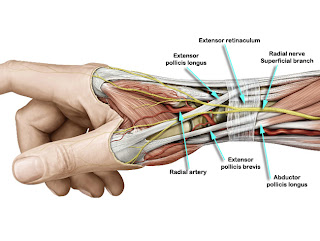Daily walking performance as an independent predictor of advanced heart failure: Prediction of exercise capacity in chronic heart failure.
PURPOSE: The purpose of this study was to use an accelerometer to measure daily walking performance in patients with chronic heart failure (CHF) to investigate if this parameter is a determinant of New York Heart Association class and indicative of maximal and functional exercise capacity.
METHODS: Fifty patients with CHF were instructed to wear an accelerometer for 7 consecutive days while going about their daily business. Maximal and functional exercise capacity was assessed by cardiopulmonary (VO(2peak)) and 6-minute walk testing, respectively.
RESULTS: Patients in New York Heart Association I, II, and III reached an average total walking time (TWT) of 160.6 +/- 35.8 minutes, 133.9 +/- 59.0 minutes, and 76.1 +/- 22.5 minutes per day of which 19%, 19%, and 9% where spent in the fast walking mode (>83 m/minute), respectively. The TWT correlated strongly with VO(2peak) (r = 0.72; P <.001) and 6-minute walk testing distance (r = 0.68; P <.001). The TWT and time spent in fast walking mode were the strongest determinants in discriminating moderate CHF.
CONCLUSION: Daily walking performance is a clear determinant of maximal and functional exercise capacities in patients with CHF. Walking intensity in particular is an independent predictor in discriminating patients with advanced heart failure. Monitoring of daily walking performance might aid in detecting disease progression and improve clinical outcome.
Reference & Authors
Jehn M, Schmidt-Trucksäss A, Schuster T, Weis M, Hanssen H, Halle M, Koehler F.
Department of Prevention, Rehabilitation, and Sports Medicine, Technical University of Munich, Germany. jehn@sport.med.tum.de
METHODS: Fifty patients with CHF were instructed to wear an accelerometer for 7 consecutive days while going about their daily business. Maximal and functional exercise capacity was assessed by cardiopulmonary (VO(2peak)) and 6-minute walk testing, respectively.
RESULTS: Patients in New York Heart Association I, II, and III reached an average total walking time (TWT) of 160.6 +/- 35.8 minutes, 133.9 +/- 59.0 minutes, and 76.1 +/- 22.5 minutes per day of which 19%, 19%, and 9% where spent in the fast walking mode (>83 m/minute), respectively. The TWT correlated strongly with VO(2peak) (r = 0.72; P <.001) and 6-minute walk testing distance (r = 0.68; P <.001). The TWT and time spent in fast walking mode were the strongest determinants in discriminating moderate CHF.
CONCLUSION: Daily walking performance is a clear determinant of maximal and functional exercise capacities in patients with CHF. Walking intensity in particular is an independent predictor in discriminating patients with advanced heart failure. Monitoring of daily walking performance might aid in detecting disease progression and improve clinical outcome.
Reference & Authors
Jehn M, Schmidt-Trucksäss A, Schuster T, Weis M, Hanssen H, Halle M, Koehler F.
Department of Prevention, Rehabilitation, and Sports Medicine, Technical University of Munich, Germany. jehn@sport.med.tum.de


Comments
Post a Comment